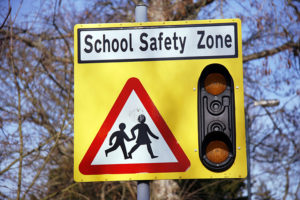In New Jersey, school anti-bullying coordinators are crediting one of the nation’s oldest anti-bullying laws with helping to keep classrooms safe.

In New Jersey, school anti-bullying coordinators are crediting one of the nation’s oldest anti-bullying laws with helping to keep classrooms safe.
New Jersey passed its first anti-bullying law in 2002 requiring schools to offer anonymous reporting and conduct investigations into complaints. Lawmakers followed up nine years later with an expansion known as the Anti-Bullying Bill of Rights, which better defined bullying and mandated anti-bullying coordinators at every school, as well as specific timelines and procedures for investigating incidents, the Burlington County Times reports.
Anti-bullying coordinators said the laws provided schools with a blueprint for identifying and responding to both bullies and victims, along with training to help students develop kindness and civic responsibility.
“I think the New Jersey anti-bullying bill of rights does a great job encompassing every area,” Pemberton Township coordinator Rita Jenkins told the news site. “I say we’re fortunate with the big plug with character education. We’re very conscientious to make sure that we’re teaching these responsibilities, and ultimately that will help with the bullying situation.”
And that’s important because according to the data, bullying is a major contributor to school violence overall.
The Times reports:
The FBI’s 2017 guidelines for violence prevention in schools said bullying is often a precursor to school violence, and in 71 percent of instances of targeted school violence, the most common motive among perpetrators was ‘revenge’ for bullying.
New Jersey’s anti-bullying laws put schools, parents, lawmakers, counselors and others involved with students on the same page, while offering opportunities to build relationships.
Pemberton Child Study Team Supervisor Holly Corsanico said stronger relationships between students and adults in schools, in particular, helps to both identify troubled students and prevent them from doing something they might regret.
“I think that’s one of these stemming things with these cases that have occurred is, did they have – could we have prevented it by having connections and having an outlet and someone to speak with?” Corsanico said. “Because you’re really not going to hurt someone if you have a relationship with them, or you’re less likely to hurt anyone if you have some type of bond or connection with them.”
James Davison Hunter, founder of the Institute for Advanced Studies in Culture, highlighted the critical importance of presenting a unified message to students on issues involving character and moral values in his book “The Tragedy of Moral Education in America”:
Moral education can work where the community, and schools and other institutions within it, share a moral culture that is integrated and mutually reinforcing; where the social networks of adult authority are strong, unified, and consistent in articulating moral ideals and their attending virtues; and where adults maintain a ‘caring watchfulness’ over all aspects of a young person’s maturation.
Teachers and parents interested in character education can look to the Jubilee Centre for Character and Virtues for lessons and resources on a variety of topics. Lessons like “The Virtue of Friendliness and Civility” encourage students to consider the perspective of Aristotle in exploring the impact of their actions on themselves and others.



